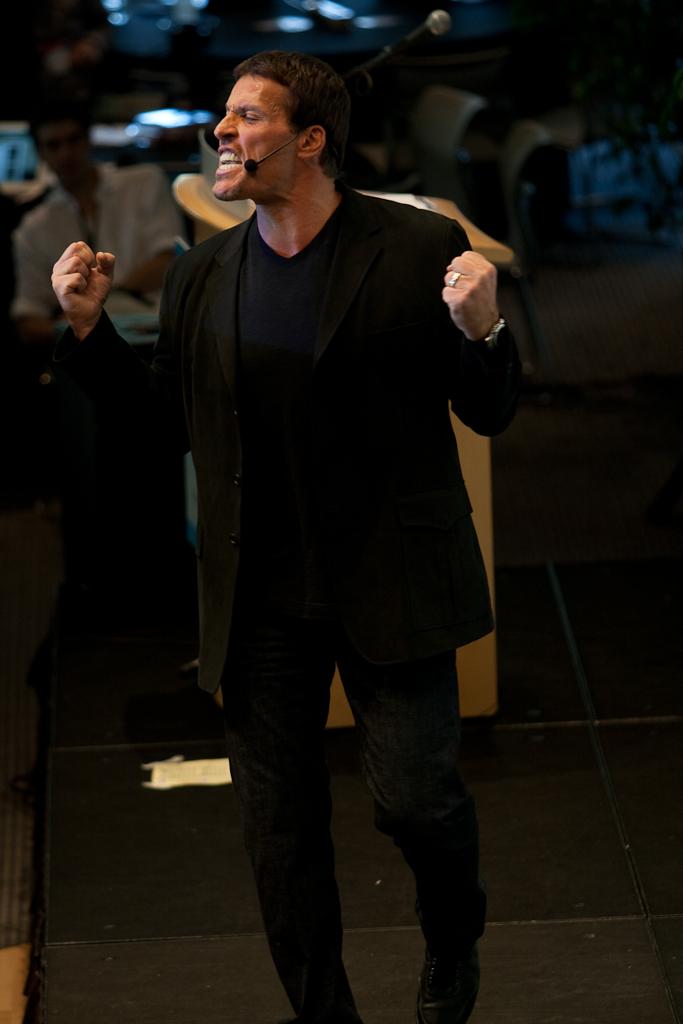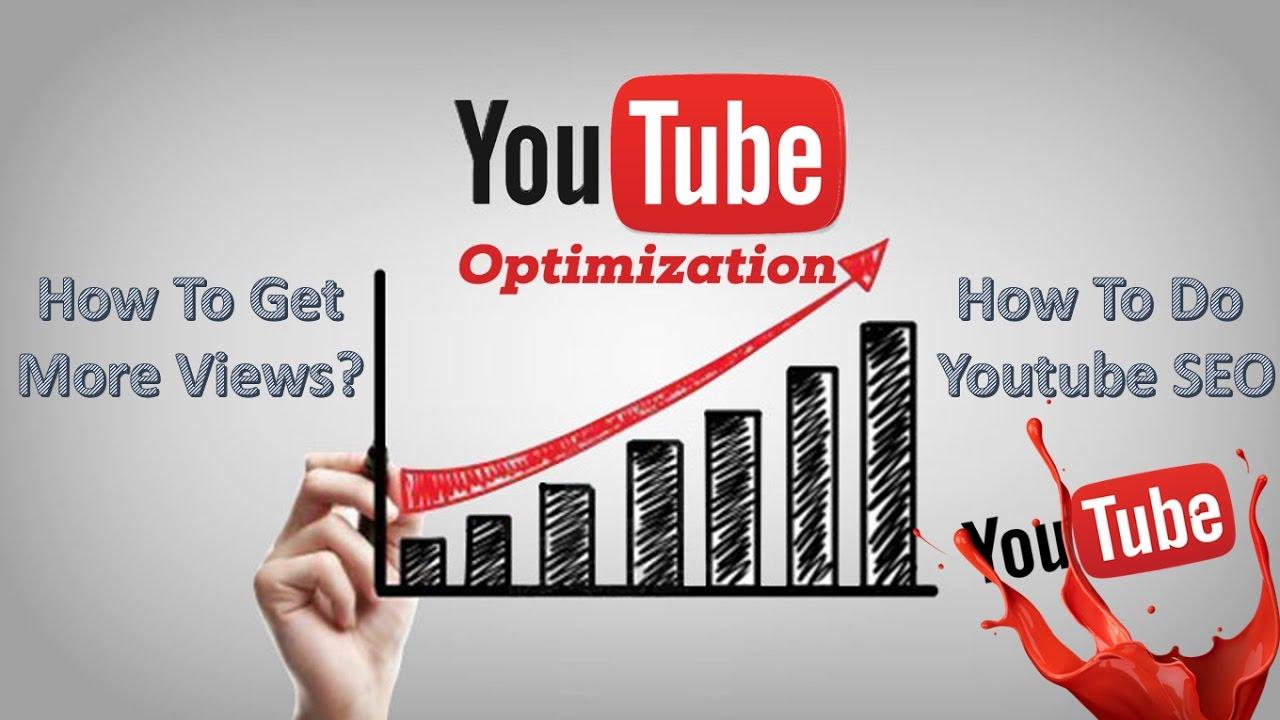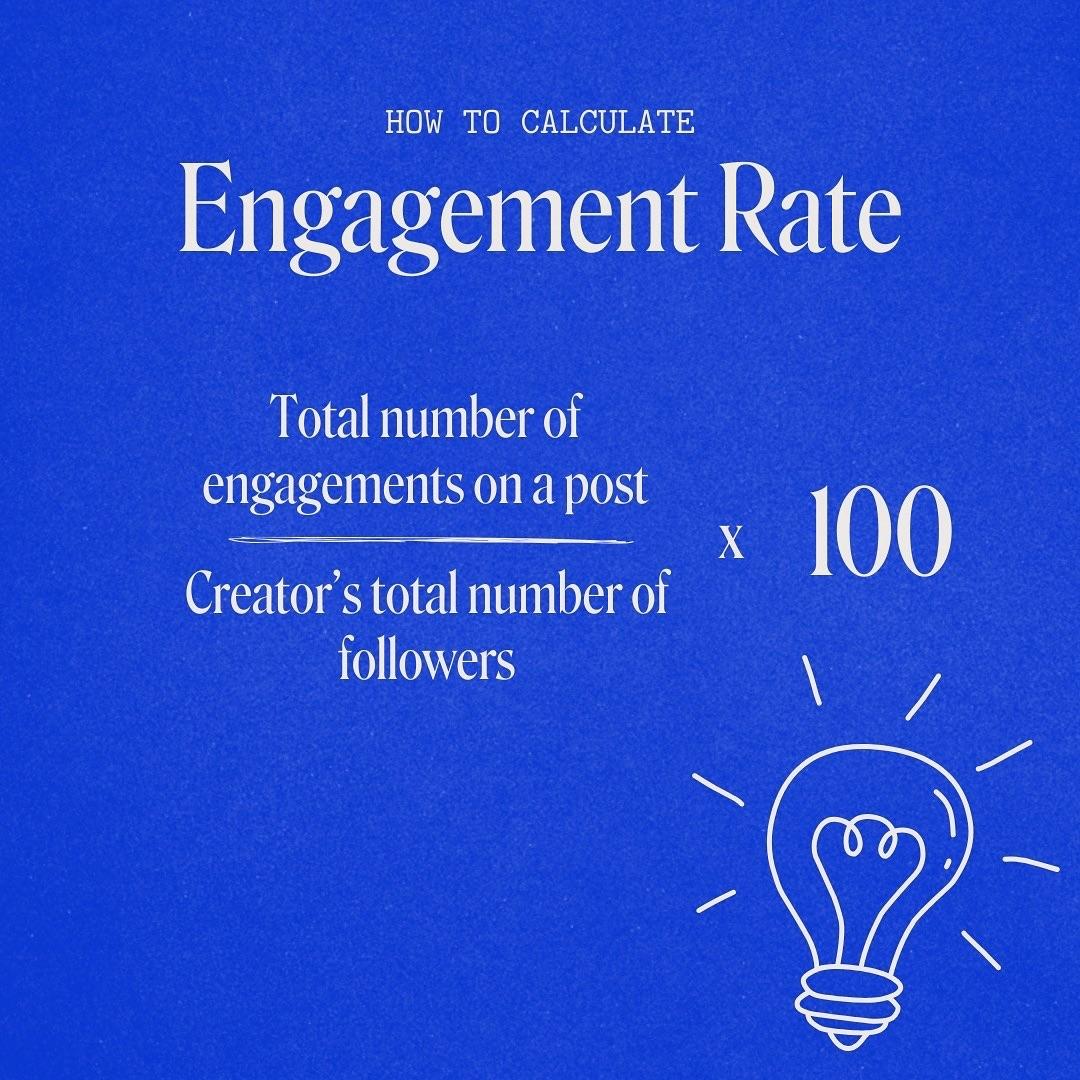
Introduction
Have you ever felt that spark inside you, the urge to inspire others and share your story? You’re not alone! Becoming a motivational speaker is not just about standing on a stage; it’s about igniting passion, fostering change, and making a real difference in people’s lives. Whether you’ve been through challenges that taught you resilience, or you have profound insights to share, your voice can resonate with those who need it most.
In this article, we’ll explore the exciting journey of becoming a motivational speaker and reveal the steps you can take to not only captivate your audience but also leave a lasting impact. If you’ve ever dreamed of turning your experiences into powerful lessons or simply want to uplift others, you’re in the right place. Let’s dive into the world of motivational speaking and discover how you can transform your inspiration into action!
Understanding the Role of a Motivational Speaker
In today’s fast-paced world, the role of a motivational speaker is more critical than ever. These individuals are not just entertainers; they are catalysts for change, inspiring people to overcome challenges and pursue their dreams. A successful motivational speaker possesses a unique blend of passion, authenticity, and relatability that resonates with audiences from various backgrounds.
One of the key aspects of being an effective motivational speaker is understanding your audience. This involves:
- Identifying their needs: What challenges are they facing? What motivates them?
- Adapting your message: Tailoring your content to meet the audience’s expectations and preferences.
- Building rapport: Establishing a connection that fosters trust and openness.
Effective speakers also master the art of storytelling. By sharing personal experiences, challenges, and triumphs, they illustrate their messages in a relatable manner. Stories not only capture attention but also evoke emotions, making the content memorable. The power of storytelling lies in its ability to:
- Engage the audience: A well-crafted story draws listeners in, making them feel involved.
- Illustrate key points: Real-life examples can clarify complex concepts.
- Inspire action: When audiences see themselves in the speaker’s story, they are more likely to take action.
Another essential component of a motivational speaker’s role is to provide practical strategies and tools that the audience can implement immediately. This includes:
- Actionable advice: Clear steps that attendees can take to move forward.
- Resources: Recommendations for books, workshops, or tools that can further assist their journey.
- Encouragement: Reminding them that change is possible and within reach.
In a world filled with distractions, a skilled motivational speaker can harness the power of presence. This means being fully engaged, maintaining eye contact, and using body language effectively to convey passion and enthusiasm. A strong on-stage presence can significantly enhance the audience’s experience and impact.
Lastly, it’s crucial for motivational speakers to embrace continuous learning and self-improvement. The most impactful speakers are those who actively seek feedback, refine their skills, and stay informed about current trends and challenges in their fields. By doing so, they not only enhance their own abilities but also remain relevant to their audiences.

Identifying Your Unique Message and Passion
Every powerful motivational speaker has a unique story and message that resonates with their audience. To stand out in this field, it’s crucial to dive deep into what makes you, you. Reflect on your experiences, challenges, and triumphs. What lessons have you learned that could inspire others? Your journey is a treasure trove of insights waiting to be shared.
Start by asking yourself some important questions:
- What life events have shaped who I am today?
- What topics am I passionate about discussing?
- How can my experiences help others navigate their own challenges?
To hone in on your unique message, create a mind map that connects your passions with your experiences. This visual representation can help you identify themes and patterns that emerge from your life. For instance, if you overcame a significant obstacle, consider how that journey can inspire others facing similar hurdles.
It’s also beneficial to explore the intersection of your interests and your audience’s needs. Research the topics that are trending within the motivational speaking community. Use social media platforms to gauge what resonates with people. Engaging with your audience can unveil their pain points, allowing you to tailor your message to meet their needs effectively.
Consider creating a table to outline your potential topics and how they relate to your experiences and audience interests:
| Topic | Your Experience | Audience Need |
|---|---|---|
| Overcoming Adversity | Personal struggle with illness | Inspiration to face challenges |
| Building Confidence | Journey from self-doubt to self-love | Strategies to improve self-esteem |
| Finding Purpose | Career transitions | Guidance for life choices |
Once you have a clearer idea of your message, practice articulating it. Create a concise elevator pitch that encapsulates your story and what you stand for. This will not only help you communicate effectively but also refine your thoughts as you prepare for larger speaking engagements.
remember that authenticity is key. Your audience will connect with your genuine passion and unique voice. Don’t be afraid to be vulnerable and share your true self; this is often what leaves a lasting impact on those who hear you speak. The more you embrace your individuality, the more likely you are to inspire others through your words.
Building Confidence Through Personal Experience
Building confidence is often a journey shaped by our personal experiences, and it is through these narratives that we find our voice as motivational speakers. Each story, whether it’s a triumph or a setback, contributes to the tapestry of our understanding and allows us to connect authentically with our audience.
Consider the moments in your life that have challenged you the most. These experiences are gold mines of insight. Here are a few ways to harness them:
- Reflect on your journey: Take time to think about the pivotal moments that have shaped who you are. What lessons did you learn? How did you overcome obstacles?
- Share your vulnerabilities: Audiences resonate with authenticity. By sharing your struggles, you invite others to relate to you on a personal level, which builds trust.
- Transform pain into purpose: Use your challenges as a platform to inspire others. When you demonstrate how you turned adversity into growth, you empower your listeners to do the same.
When crafting your speeches, focus on the emotions tied to your experiences. Stories that evoke feelings can be far more impactful than just reciting facts or figures. Consider using a structure like this for your storytelling:
| Story Element | Description |
|---|---|
| Setting | Introduce the context of your story. Where and when did it take place? |
| Challenge | What was the obstacle you faced? Make it relatable. |
| Climax | Describe the turning point. What did you do in that moment? |
| Resolution | How did you overcome the challenge? What lessons did you learn? |
As you share your experiences, remember that the art of storytelling lies in your delivery. Your tone, body language, and energy can all enhance your message. Practice speaking with passion and enthusiasm; this is how you truly captivate an audience. Here are some techniques to consider:
- Use pauses effectively: Allow your audience to absorb your message and create suspense. A well-placed pause can amplify the impact of your words.
- Incorporate humor: Light-hearted moments can break the ice and create a friendly atmosphere. Make sure the humor relates to your message.
- Engage your audience: Ask questions or encourage participation. This makes your talk more interactive and keeps listeners invested.
Lastly, never underestimate the power of practice. The more you speak, the more confident you will become. Seek out opportunities to share your story in front of different audiences, whether it’s at local events, workshops, or even online platforms. With each experience, your confidence will grow, and you will refine your ability to make a real impact.
Crafting a Compelling Story that Resonates
Every great speaker knows the power of storytelling. It’s more than just a method; it’s an art that engages, inspires, and transforms audiences. Crafting a story that resonates involves weaving personal experiences, struggles, and triumphs into a narrative that listeners can connect with deeply.
To create impactful stories, consider these essential elements:
- Authenticity: Share your own journey, including the challenges and failures. When your audience sees the real you, they are more likely to relate and feel inspired.
- Emotion: Tap into emotions that evoke empathy. Use vivid language to paint a picture that resonates with your audience’s feelings.
- Structure: Every great story has a clear beginning, middle, and end. Start with a hook to grab attention, build tension in the middle, and conclude with a powerful takeaway.
- Relatability: Ensure your story reflects experiences that your audience can relate to. Find common ground and show them how they can overcome similar challenges.
As you develop your narrative, consider the following techniques to enhance its impact:
- Use anecdotes: Personal anecdotes bring authenticity and relatability to your story. Share a moment that changed your perspective or shaped your journey.
- Engage the senses: Describe sights, sounds, and feelings to immerse your audience in your story. The more vivid the details, the more memorable your narrative will be.
- Incorporate dialogue: Including conversations not only adds dynamism but also gives your audience insight into your experiences and feelings.
Moreover, consider using the following table to illustrate key takeaways that can stem from your stories:
| Key Elements | Impact on Audience |
|---|---|
| Authenticity | Builds trust and connection |
| Emotion | Evokes empathy and reflection |
| Structure | Creates clarity and engagement |
| Relatability | Inspires action and change |
don’t forget the importance of practice. Storytelling is a skill that can be refined over time. Rehearse your delivery, refining your tone, pacing, and body language to enhance the emotional weight of your narrative. Recording yourself can provide valuable feedback, allowing you to identify areas for improvement.
As you embark on your journey as a motivational speaker, remember that your story is your most powerful tool. By sharing a narrative that resonates, you can connect with your audience on a profound level, inspire change, and make a lasting impact. The stories you tell could be the catalyst for someone else’s transformation. Embrace the power of your experiences and let your voice be heard!
Connecting with Your Audience on a Deeper Level
To truly resonate with your audience, you must move beyond mere words and connect with their emotions and aspirations. This means understanding who they are, what they struggle with, and how your message can serve as a beacon of hope and motivation in their lives. Here are a few strategies to deepen that connection:
- Active Listening: Engage with your audience by asking questions and genuinely listening to their responses. This not only shows that you care but also allows you to tailor your message to their needs.
- Share Personal Stories: People connect with stories. By sharing your own challenges and triumphs, you can create a relatable narrative that resonates on a personal level.
- Encourage Interaction: Invite your audience to participate in discussions or activities during your speech. This two-way communication fosters a sense of community and investment in your message.
- Visual Aids: Use visuals like slides or videos that evoke emotions and reinforce your points. A powerful image can speak to the heart when words alone may not suffice.
In order to craft a message that truly impacts, consider the following key elements:
| Element | Impact |
|---|---|
| Authenticity | Builds trust and credibility. |
| Empathy | Creates a strong emotional bond. |
| Clarity | Ensures your message is understood and memorable. |
| Positivity | Inspires and uplifts the audience. |
Remember, the goal is not just to inform, but to inspire action. Encourage your audience to reflect on their own lives and how they can implement the insights you share. Challenge them to think critically about their goals and the steps necessary to achieve them. This proactive approach will leave them feeling empowered and ready to make changes.
always follow up. Whether it’s through social media, email newsletters, or community events, maintaining the connection after your speech can reinforce your message and create a lasting impact. People are more likely to remember you and your message when they see you actively engaging with them beyond the podium.

Essential Skills Every Motivational Speaker Should Master
To truly resonate with an audience, a motivational speaker needs to cultivate several essential skills that empower them to connect, inspire, and motivate effectively. Here’s a deep dive into the key competencies that every aspiring speaker should develop:
- Authentic Storytelling: Sharing personal stories allows speakers to build a connection with their audience. Authenticity fosters trust and relatability, making your message more impactful.
- Effective Communication: Clarity is crucial. Mastering verbal and non-verbal communication ensures your ideas are conveyed with precision. This includes tone, body language, and pacing.
- Active Listening: Engaging with your audience means understanding their needs and concerns. Active listening helps you tailor your message and respond appropriately.
- Emotional Intelligence: The ability to perceive and manage emotions—both your own and those of your audience—enhances your effectiveness as a speaker. It helps you create an emotionally charged atmosphere that can motivate change.
- Persuasion Techniques: Learning how to persuade is crucial in motivating others. This involves understanding the principles of influence and using them ethically to encourage action among your audience.
Additionally, mastering the art of presentation is vital. This includes:
- Visual Aids: Using slides, videos, or props can enhance understanding and retention of your message. Ensure your visuals are clear, relevant, and engaging.
- Public Speaking Skills: Developing a confident stage presence is essential. Practice your delivery to minimize anxiety and enhance your connection with the audience.
- Adaptability: The ability to adjust your message on the fly based on audience reactions can significantly enhance the effectiveness of your speech.
To further clarify the vital skills, consider the following table that summarizes their importance and application:
| Skill | Importance | Application |
|---|---|---|
| Authentic Storytelling | Builds connection | Share personal anecdotes |
| Effective Communication | Ensures clarity | Practice speech delivery |
| Active Listening | Understand audience | Engage during Q&A |
| Emotional Intelligence | Creates connection | Gauge audience emotions |
| Persuasion Techniques | Motivates action | Utilize storytelling |
By honing these skills, you can elevate your speaking engagements from mere speeches to transformative experiences. Invest time in developing each area, and watch as your ability to make a real impact grows exponentially.

Utilizing Social Media to Expand Your Reach
In today’s digital landscape, leveraging social media isn’t just an option; it’s a necessity for anyone looking to make a mark as a motivational speaker. By harnessing the power of platforms like Instagram, Facebook, Twitter, and LinkedIn, you can build a community, share your insights, and reach a wider audience than ever before.
First and foremost, consistency is key. Establish a posting schedule that allows you to regularly share your thoughts, experiences, and tips. This not only keeps your audience engaged but also positions you as a reliable source of inspiration. Whether it’s a daily quote, a weekly video, or live Q&A sessions, make sure your followers know when to expect new content from you.
Engaging with your audience is another vital aspect of expanding your reach. Don’t just post and ghost; take the time to respond to comments, ask questions, and encourage discussions. This creates a sense of community and makes your followers feel valued. Here are some ideas to enhance engagement:
- Host live sessions where you can interact in real-time.
- Start challenges that encourage your followers to share their stories.
- Run polls or surveys to gather opinions and insights from your audience.
Visual content can also significantly boost your visibility. People are naturally drawn to images and videos, so consider incorporating more visual storytelling into your posts. Create motivational graphics, share behind-the-scenes videos of your speaking engagements, or even go live to give a glimpse into your preparation process. Remember, a picture is worth a thousand words, so let your visuals do some talking!
Collaborating with other influencers or motivational speakers can open doors to new audiences. Reach out to individuals whose values align with yours and explore opportunities to co-host events, share each other’s content, or participate in podcasts. These collaborations can expose you to a whole new set of followers who may be interested in your message.
To effectively track your growth and engagement, consider utilizing analytics tools provided by social media platforms. Understanding what type of content resonates most with your audience allows you to refine your strategy. Keep an eye on metrics such as engagement rates, shares, and follower growth to identify trends and optimize your approach.
| Platform | Best Content Type | Audience Engagement |
|---|---|---|
| Visual Quotes, Stories | High (through likes and comments) | |
| Live Videos, Polls | Moderate (through shares and reactions) | |
| Quick Tips, Threads | Low to Moderate (retweets and likes) | |
| Articles, Professional Insights | High (through comments and shares) |
Lastly, don’t underestimate the power of storytelling. Share your personal journey, including the challenges you faced and how you overcame them. Authenticity attracts attention and fosters a deeper connection with your audience. Remember, people relate to stories more than they do to statistics. When they see your vulnerability, they are more likely to be inspired by your strength.

Creating Engaging and Impactful Presentations
Creating a presentation that captivates your audience requires more than just well-crafted slides. It’s about forging a connection that inspires, motivates, and leaves a lasting impact. Here are some essential strategies to elevate your presentations:
- Know Your Audience: Tailor your content to the interests and needs of your listeners. Understand their demographics, preferences, and pain points to resonate with them effectively.
- Tell Stories: Humans are wired for storytelling. Incorporate captivating anecdotes and personal experiences to illustrate your points. Stories create emotional connections and make your message memorable.
- Use Visuals Wisely: A picture is worth a thousand words. Use high-quality images, infographics, and videos to complement your narrative. Keep slides uncluttered, focusing on key visuals that support your message.
- Engage with Questions: Spark interaction by posing questions throughout your presentation. This invites participation and keeps your audience engaged. Consider using polls or live Q&A sessions to foster dialogue.
Another critical aspect of impactful presentations is your delivery. The way you present can make all the difference:
- Practice Regularly: Rehearse your presentation multiple times. Familiarity fosters confidence, allowing you to focus on your delivery rather than just remembering your lines.
- Use Body Language Effectively: Non-verbal cues can enhance your message. Maintain eye contact, use gestures, and move around the stage to create a dynamic presence.
- Vocal Variety: Your tone, pitch, and pace can convey enthusiasm. Vary your vocal delivery to emphasize key points and maintain audience interest.
consider incorporating the following elements into your presentation to drive your message home:
| Element | Impact |
|---|---|
| Call to Action | Encourages your audience to take specific steps after your presentation. |
| Quotes and Statistics | Adds credibility and reinforces key points. |
| Clear Structure | Helps your audience follow along and retain information. |
By integrating these techniques, you’ll not only enhance the quality of your presentations but also ensure that your audience walks away feeling inspired and motivated to act. Remember, the goal is to create an experience that resonates long after the last slide fades. Make every word count, and let your passion shine through!

Networking with Other Speakers and Influencers
Building a solid network with other speakers and influencers is crucial for anyone aspiring to make a mark in the world of motivational speaking. Connecting with like-minded individuals not only broadens your horizons but also opens doors to collaborative opportunities that can amplify your reach and impact.
To start, consider joining professional organizations and associations related to public speaking and motivational speaking. These groups often host events, workshops, and conferences designed to foster connections among speakers. Participating in such gatherings can lead to valuable friendships, mentorships, and even partnerships. Here are some benefits of joining these organizations:
- Access to Resources: Gain insights on industry trends and speaking opportunities.
- Skill Development: Enhance your speaking skills through workshops and trainings.
- Networking Events: Meet experienced speakers and influencers face-to-face.
Don’t underestimate the power of social media in building your network. Platforms like LinkedIn, Twitter, and Instagram are teeming with speakers and influencers eager to connect. Here’s how to make the most of social media:
- Engage Actively: Comment on posts, share relevant content, and participate in discussions.
- Follow Industry Leaders: Learn from their strategies and insights, and don’t hesitate to reach out with genuine compliments or questions.
- Create Valuable Content: Share your unique perspective and insights to attract like-minded individuals.
Hosting or participating in webinars and panel discussions is another excellent way to network. Not only do you showcase your expertise, but you also position yourself alongside other influential speakers. This can lead to meaningful connections that may result in collaborative projects or speaking engagements. Here’s a simple table to illustrate potential webinar topics:
| Webinar Topic | Potential Speakers |
|---|---|
| Overcoming Adversity | Life Coaches, Psychologists |
| Effective Communication Skills | Public Speaking Experts, HR Leaders |
| Leadership Development | Corporate Trainers, Influencers |
Don’t shy away from collaborative speaking gigs. Partnering with other speakers for joint events can be mutually beneficial. You can share the stage with those who complement your message while expanding your audience base. This not only enhances your credibility but also creates a more dynamic and engaging experience for attendees.
Lastly, remember the importance of follow-up. After meeting someone new, whether it’s at an event or online, send a brief message expressing your gratitude for the conversation and your interest in staying connected. This small gesture goes a long way in establishing a lasting relationship. Whether it’s through email or social media, keep the lines of communication open and nurture these connections over time.

Finding Opportunities to Speak Publicly
Finding avenues to share your message can be both exciting and daunting. However, identifying the right platforms to speak publicly is crucial in establishing your presence as a motivational speaker. Here are some effective ways to uncover these opportunities:
- Join Speaking Clubs: Groups like Toastmasters offer a supportive environment to practice and refine your speaking skills while networking with like-minded individuals.
- Attend Networking Events: Mix and mingle at industry conferences, local business meetups, and seminars. Not only can you learn from others, but you might also find invitations to speak.
- Leverage Social Media: Platforms like LinkedIn, Instagram, and Facebook can help you connect with event organizers. Share valuable content and engage with your audience to boost your visibility.
- Collaborate with Local Organizations: Nonprofits, schools, and community groups often seek speakers for workshops and events. Reach out and propose topics that align with their mission.
- Create Your Own Events: Don’t wait for invitations! Host your own workshops or webinars. This not only allows you to practice but also positions you as a leader in your niche.
To effectively maximize these opportunities, consider crafting a compelling speaker profile. This can include:
| Element | Description |
|---|---|
| Bio | A brief introduction that highlights your expertise and passion. |
| Topics | List of subjects you’re knowledgeable about and can inspire others with. |
| Testimonials | Quotes or feedback from previous audiences or clients that validate your impact. |
| Contact Information | Easy access for event organizers to reach out to you. |
Remember, persistence is key. Don’t be discouraged by initial setbacks; every speaker faces rejection before finding success. Instead, take each “no” as a stepping stone to hone your craft further. Keep refining your message, seeking feedback, and improving your delivery.
Engage with local media, such as podcasts or community radio shows, where you can share your insights. This exposure can lead to speaking opportunities while establishing you as an authority in your field. Consider offering free workshops to build your portfolio and gain valuable experience.
Lastly, always be on the lookout for speaking competitions or forums. Many organizations host events specifically designed for emerging speakers. These can provide not just a platform but also valuable exposure and networking opportunities.

Leveraging Feedback for Continuous Improvement
In the journey of becoming a motivational speaker, receiving and leveraging feedback is crucial for your growth and effectiveness. Feedback provides insights into your audience’s reactions, helping you refine your message and delivery style. Embracing constructive criticism can transform your speaking career by highlighting areas for improvement and validating your strengths.
To effectively utilize feedback, consider the following strategies:
- Solicit Feedback Regularly: After each speaking engagement, ask for feedback from attendees, organizers, and peers. This can be done through quick surveys or informal conversations.
- Be Open-Minded: Approach feedback with a willingness to learn. Remember, it’s not personal; it’s about honing your craft.
- Identify Patterns: Look for recurring themes in the feedback you receive. If multiple people mention the same point, it’s worth considering.
- Set Goals: Use the feedback to set specific, measurable goals for your next speaking engagement. This ensures that you have a clear direction for improvement.
Another effective method is to create a feedback loop. This involves keeping an ongoing dialogue with your audience. Engage them through social media or follow-up emails, asking them what resonated with them and what didn’t. This not only shows that you value their opinions but also allows for real-time adjustments in your approach.
To make the feedback process even more structured, implement a simple feedback table:
| Feedback Source | Key Takeaways | Action Steps |
|---|---|---|
| Audience Feedback | Engagement level was high, but clarity was lacking in certain sections. | Practice delivering challenging concepts more simply. |
| Peer Review | Dynamic storytelling captured attention, but pacing was inconsistent. | Work on refining timing and transitions. |
| Self-Reflection | Felt confident but noticed missed opportunities for audience interaction. | Incorporate more interactive elements in future talks. |
remember that the path to becoming a great motivational speaker is not a destination but a continuous journey. Each piece of feedback is a stepping stone towards becoming a more effective communicator. By actively seeking out and embracing feedback, you will not only improve your speaking skills but also enhance your ability to make a lasting impact on your audience.

Monetizing Your Speaking Engagements Effectively
As a motivational speaker, your ability to inspire and engage your audience can open doors to a variety of revenue streams. To truly capitalize on your speaking engagements, you need to approach monetization with a strategic mindset. Here are some effective ways to turn your talent into a profitable venture:
- Sell Merchandise: Create branded merchandise such as books, workbooks, or motivational posters that resonate with your message. This not only enhances your brand but also provides attendees with tangible takeaways.
- Offer Workshops: After your speaking engagement, offer in-depth workshops or training sessions. These can be ticketed events that dive deeper into the topics you discuss during your keynote.
- Consulting Services: Position yourself as an expert in your field and provide consulting services to organizations or individuals looking for personalized guidance.
- Online Courses: Leverage your expertise by creating online courses that can be marketed alongside your speaking engagements. This allows you to reach a wider audience without the constraints of physical locations.
Networking is crucial in the speaking industry. Building relationships with event planners, corporate sponsors, and fellow speakers can lead to more engagement opportunities. Attend industry conferences and engage with others on social media platforms to expand your reach. Don’t hesitate to ask for referrals or testimonials, as these can significantly enhance your credibility and attract new clients.
Consider utilizing digital platforms for greater exposure. Webinars and online summits can be a fantastic way to showcase your speaking skills while reaching an audience that may not be able to attend in person. Record your sessions and offer them as valuable content that can drive traffic back to your website.
| Strategy | Description |
|---|---|
| Merchandise | Sell books and branded items related to your speeches. |
| Workshops | Host hands-on sessions to delve deeper into topics. |
| Consulting | Offer expertise directly to clients for personalized guidance. |
| Online Courses | Develop digital courses to reach more people. |
| Webinars | Engage remote audiences through live online events. |
Lastly, remember to keep your brand consistent across all platforms. Your website, social media profiles, and promotional materials should all reflect your unique voice and message. Invest in professional branding and marketing to ensure that you stand out in a crowded market. By establishing a strong, cohesive brand, you’ll not only attract more speaking engagements but also command higher fees.
requires a blend of creativity, strategic planning, and relentless networking. By diversifying your income sources and building a strong personal brand, you can transform your passion for motivational speaking into a sustainable career.

Establishing Your Brand as a Motivational Speaker
As you embark on your journey to become a motivational speaker, establishing a strong brand is paramount. Your brand is not just a name; it’s the essence of who you are, what you believe in, and the message you want to share with the world. Here are some essential steps to help you carve out a unique identity that resonates with your audience:
- Define Your Niche: What specific area do you want to focus on? Whether it’s personal development, leadership, or mental health, narrowing down your niche will help you connect deeply with your target audience.
- Craft Your Unique Selling Proposition (USP): What sets you apart from other speakers? Consider your experiences, expertise, and perspective. This will become the cornerstone of your brand.
- Develop a Personal Story: Personal anecdotes create emotional connections. Share your journey, struggles, and triumphs. Your story will not only inspire others but also make your message relatable.
- Consistent Visual Identity: Invest in professional branding. This includes your logo, color scheme, and website design. A cohesive visual identity reinforces your brand and helps you stand out.
Your online presence is crucial for building your brand. Consider these strategies:
- Create a Professional Website: Your website should be a hub of information about you, your services, and your mission. Include testimonials, a blog, and resources for your audience.
- Engage on Social Media: Use platforms like Instagram, LinkedIn, and Facebook to share insights, videos, and motivational quotes. Regular engagement helps cultivate a community around your brand.
- Content Creation: Start a blog or a podcast. Share valuable content that aligns with your message. This not only enhances your credibility but also attracts a loyal following.
Building relationships within your industry is equally important. Here’s how you can network effectively:
| Networking Strategy | Description |
|---|---|
| Attend Conferences | Participate in events where you can meet fellow speakers and potential clients. |
| Join Speaking Associations | Membership in organizations can provide resources and connections. |
| Collaborate with Other Speakers | Partnering on workshops or webinars can amplify your reach. |
Lastly, always seek feedback and continuously refine your message. Ask your audience what resonates with them and be open to making adjustments. This adaptability not only improves your presentations but also strengthens your brand, making it more authentic and impactful.

Making a Lasting Impact Beyond the Stage
Being a motivational speaker isn’t just about captivating an audience for a brief moment; it’s about creating ripples that extend far beyond the confines of the stage. The true essence of this role lies in inspiring meaningful change in the lives of others. To make a lasting impact, your message must resonate deeply and encourage action long after you’ve stepped away from the spotlight.
To achieve this, consider embracing the following strategies:
- Authenticity: Share your personal journey and real-life experiences. When your audience sees the genuine you, they are more likely to connect with your message.
- Actionable Advice: Offer practical tools and strategies that your listeners can apply immediately. The more actionable your advice, the more likely it is to lead to real changes.
- Engagement: Foster interaction during your talks. Encourage questions and discussions that allow audience members to express their thoughts and feelings related to your message.
- Follow-Up: Create opportunities for ongoing engagement. Whether through social media, newsletters, or workshops, keep the conversation going and encourage continued growth.
After your presentation, the real work begins. It’s crucial to cultivate a community around your message. Building a robust online presence through social media platforms, blogs, and podcasts can help you stay in touch with your audience. Regularly share insights, success stories, and encouragement. This not only reinforces your relationship with them but also positions you as a trusted resource.
Additionally, consider hosting workshops or retreats where participants can dive deeper into the concepts you discuss. These events can serve as transformative experiences, allowing attendees to apply what they’ve learned in a supportive environment. By facilitating deeper connections and learning, you create a legacy of change that extends well beyond a single speech.
Another effective way to amplify your impact is through collaboration. Partnering with organizations, schools, or community groups can help distribute your message to wider audiences. Create tailored programs that address specific needs and challenges faced by these groups. This targeted approach not only enhances your outreach but also illustrates your commitment to making a difference.
Lastly, measuring your impact is essential. Use feedback forms, surveys, or follow-up interviews to assess how your message has influenced lives. This data will not only inform your future presentations but also highlight the positive changes you’ve facilitated, allowing you to share these success stories with others.
transforming others’ lives is a journey that requires dedication, creativity, and a genuine desire to empower. By focusing on authenticity, ongoing engagement, and collaboration, you can ensure that your impact as a motivational speaker remains profound and lasting.
Frequently Asked Questions (FAQ)
Q&A: How to Become a Motivational Speaker & Make a Real Impact
Q: What exactly does a motivational speaker do?
A: A motivational speaker inspires and encourages people through speeches that uplift and motivate. They share stories, insights, and strategies that resonate with their audience, helping them overcome challenges and pursue their goals. Think of it as being the spark that ignites change in someone’s life!
Q: Do I need special qualifications to become a motivational speaker?
A: Not necessarily! While some speakers have formal training in public speaking or psychology, the most important qualification is your passion and life experience. Your unique story and perspective can offer profound insights. If you have a message that can help others, you’re already on the right path!
Q: How do I find my niche as a motivational speaker?
A: Finding your niche is all about introspection. What topics are you passionate about? What experiences have shaped your life? Consider the challenges you’ve overcome or the lessons you’ve learned. Your niche could be anything from personal development to overcoming adversity. The key is to identify what resonates with you and your potential audience.
Q: What are the first steps I should take to start speaking?
A: Start by honing your speaking skills. Practice in front of friends or family, or even record yourself. Next, consider volunteering to speak at local events, schools, or community organizations. This not only builds your confidence but also helps you refine your message. Plus, it’s a great way to make valuable connections!
Q: How can I market myself as a motivational speaker?
A: In today’s digital age, having an online presence is crucial. Create a professional website showcasing your bio, testimonials, and speaking topics. Utilize social media platforms to share your insights and connect with your audience. Networking is also important; attend events, join speaking organizations, and collaborate with other speakers to expand your reach.
Q: What’s the best way to engage my audience during a speech?
A: Engaging your audience is all about connection! Use storytelling to relate to their experiences, ask thought-provoking questions, and encourage participation. Visual aids and humor can also help keep their attention. Remember, it’s not just about what you say, but how you make them feel. Aim for a genuine connection!
Q: How can I measure the impact of my talks?
A: Gathering feedback is key! After your speeches, ask your audience for their thoughts—what resonated with them, what they learned, and what they’d like to see in the future. You can also look for changes in their attitudes or behaviors over time. If you’re making a positive difference in their lives, you’re definitely making an impact!
Q: Any final tips for someone just starting out?
A: Absolutely! Stay authentic and true to your message. The more genuine you are, the more you’ll resonate with your audience. Don’t be afraid of setbacks—they’re part of the journey. Keep learning, keep speaking, and most importantly, keep believing in the power of your voice. You have the potential to inspire and create real change!
Future Outlook
As we wrap up this journey into the world of motivational speaking, remember that the impact you can have is boundless. If you’ve felt that spark of inspiration while reading this, it’s time to fan those flames into a roaring fire. Your voice has the power to uplift, transform, and ignite change in the lives of others.
Becoming a motivational speaker isn’t just about sharing your story; it’s about connecting with people on a deeper level and sparking their own journeys of self-discovery and growth. So, take that first step. Whether it’s honing your storytelling skills, finding your unique message, or stepping onto that stage for the first time, you have what it takes to make a real difference.
Remember, every great speaker started somewhere, often with a mix of excitement and fear. Embrace your journey, keep learning, and never underestimate the power of your words. The world is waiting for your voice—so get out there and let it be heard! You have the potential to leave an indelible mark on hearts and minds everywhere. Your time is now!






